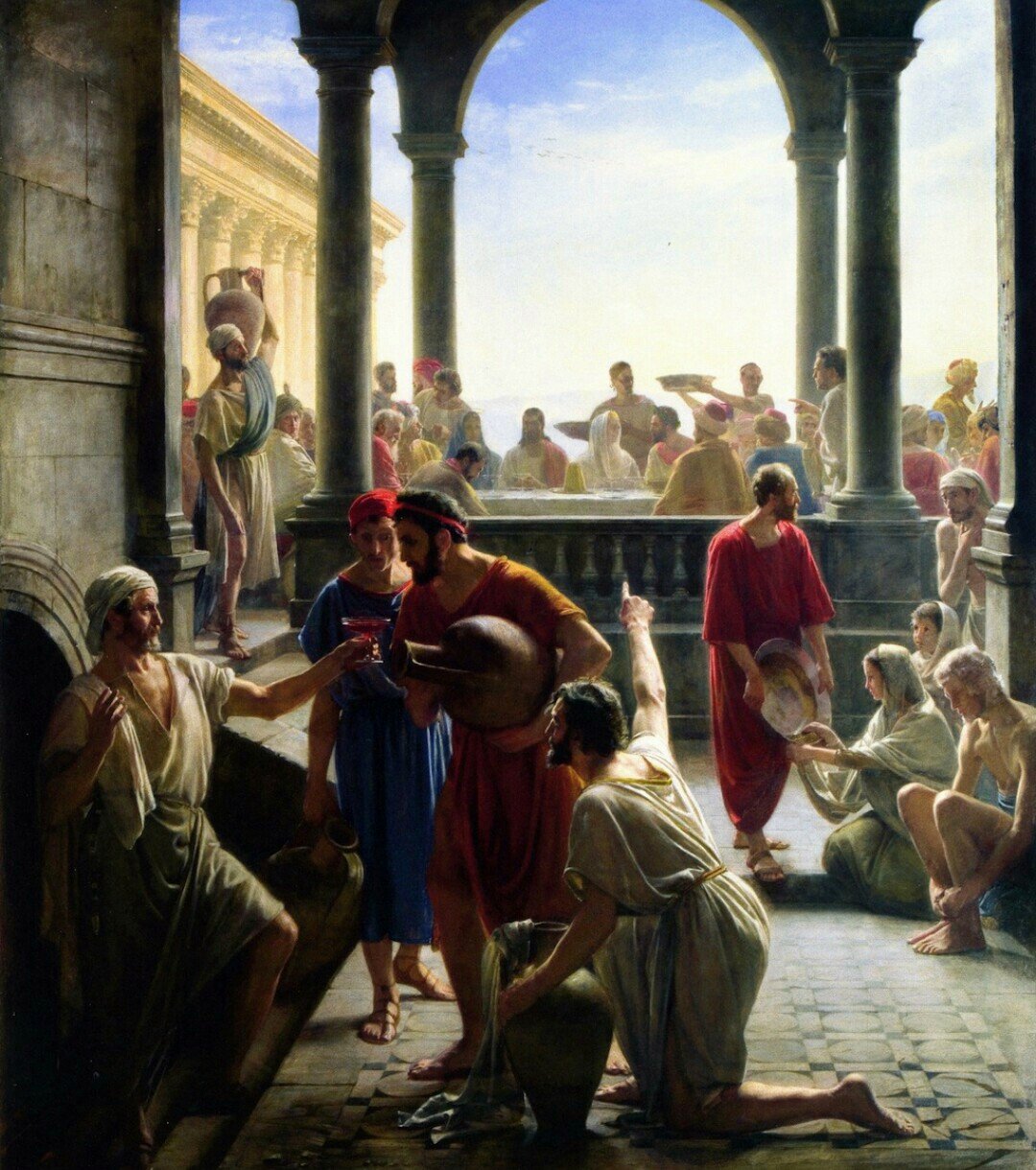2nd Sunday of the Year C (17 Jan 2010)
Is 62. 1-5; Ps 96; 1Co 12. 4-11; Jn 2. 1-11
Homily of Fr. Paul Panaretos, S.J.
Agent of Change
Exploring the history and development of Christian worship is a travelogue. Christians in a region of cities or in a single city followed one gospel as theirs. Often it was the gospel used to invite them to faith and to wear it as their faith in practice. Egypt had an affection for the gospel of Mark; Asia Minor--today’s Turkey--the gospel of John; and Jerusalem was shaped by the gospel of Matthew.
When you and I hear and think of the Epiphany of the Lord we think of the Magi in Matthew’s gospel. Other Christian communities shaped by other gospels associated epiphany with Jesus’ baptism, when Jesus was manifested as God’s beloved son. In the eastern regions of the infant church, the wedding at Cana in John’s gospel seems to have focused the epiphany of Jesus: Jesus did this as the beginning of his signs at Cana in Galilee and so revealed his glory, and his disciples began to believe in him.
While this travelogue-knowledge may expand our appreciation for the diversity of Christian worship still practiced throughout the world, it doesn’t inspire us to wear our faith as our faith in practice: example, deed, as well as word. Inspiration to wear our faith in practice day in and day out is vital. Without inspiring helps to live our faith we easily succumb to pressures from so many quarters not live it, and life’s tragic twists and turns can frighten us not to follow the promptings of Jesus’ Spirit to hold fast and endure with Jesus and feel Jesus enduring with us.
 The spousal imagery of Isaiah and the wedding at Cana are rich, yet they can distract us from the new thing God does in Jesus by their Spirit for us and through us for our world. Indeed, the first of Jesus’ transforming signs pointed to the transformation: Jesus’ cross, the symbol of absolutely new life born from his death. For that Jesus was born; Jesus replied to his mother’s request at Cana, My hour has not yet come. Cana’s sign pointed to his cross.
The spousal imagery of Isaiah and the wedding at Cana are rich, yet they can distract us from the new thing God does in Jesus by their Spirit for us and through us for our world. Indeed, the first of Jesus’ transforming signs pointed to the transformation: Jesus’ cross, the symbol of absolutely new life born from his death. For that Jesus was born; Jesus replied to his mother’s request at Cana, My hour has not yet come. Cana’s sign pointed to his cross.
We don’t shiver with awe of the first Christians at the cross. They shivered with awe because an instrument of capital execution—cross—Jesus transformed into the tree of life. By his dying and rising Jesus has become the agent of transforming change for us and through us for the world. Yet, at best we are uncomfortable with change, even change that will help us—a reason why many new year’s resolutions have such short lives. At worst we fear change.
As our messiah and savior, Jesus transforms us from people with no future to people whose future is Jesus and his promise of life. As our messiah and savior, Jesus transforms us from people with no name, giving us a new name, My Delight, and sends us forth to brighten our world with his light ablaze within us and manifest by every deed we do in his name.
The change Jesus works in us by his word and his sacraments is no mere rearrangement as we’d rearrange furniture, and it’s no cosmetic change to keep up appearances. The change Jesus works in us by his word and his sacraments is a life-altering transformation. Each of us is a new creation not just in the realm of the spirit. Pope Benedict reminded us of that not long ago, saying,
“Being Christian is more than a cosmetic operation that embellishes life...it is a new beginning and rebirth, death and resurrection. ...It is not purely spiritual but involves the body, the cosmos, and extends to the new earth and to the new heavens.”1
Our vocation is to discover more clearly in this far-reaching, unmatched experience and relationship the way Jesus delights in us.
In your daily 15 minutes with Jesus this week, pause in the recreating light and life of our triune God. Ask Mary to present you to her son. Converse with Jesus: ask him to give you new or renewed purpose as his disciple and to pour into you a new measure of his life; notice Jesus’ response to you as it registers in your feeling, your awareness or your desire. Ask Jesus for the grace to notice more clearly and to act on the grace he gives you. Close by saying slowly the prayer Jesus taught us. Praying give us this day our daily bread is praying to be changed: transformed by putting on the attitude of Jesus more courageously and wearing it in practice: example, deed, as well as prayer.
____________
1. From the pope's catechesis on the sacraments. He taught this when he delivered this catechesis on 10 Dec 2008.
___________________________________________________________
Wiki-image of a scene of the wedding at Cana is in the public domain.
1 comment:
Fr. Panaretos,
The Plain Dealer and cleveland.com are creating what we hope will be the most comprehensive directory of Northeast Ohio bloggers. Yours is one I've been following, and I'd like to see it on our list. Please sign up at http://bit.ly/5pTxkw
If you have any questions, let me know.
Post a Comment